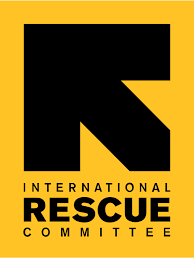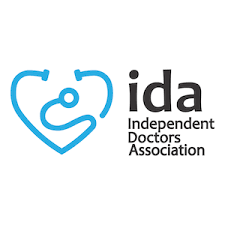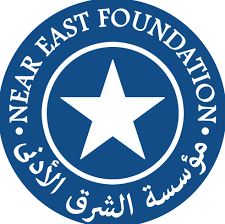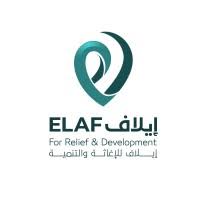آخر اعلانات الوظائف
5047 نتيجة


















.png)

القسم ب : المسوغات :
تعتزم لجنة الإنقاذ الدولية الاستفادة من خدمات مزودي خدمات النقل (مركبة متضمنة السائق) بناءً على عقد اتفاقية الخدمة مع الأفراد الذين لديهم القدرة والخبرة في تقديم مثل هذه الخدمات في سوريا-دمشق وريفها وحمص وريفها للنقل الآمن للموظفين. يجب أن يعتمد العقد المقصود على أساس يومي ، شاملًا (السائق، الوقود، الصيانة، التأمين، الدعم الاحتياطي، الغطاء القانوني) ويكون ساريًا لمدة لا تزيد عن ثلاثة أشهر.
القسم ج: مواصفات المركبة وجدول الأداء:
سيتم جدولة الخدمة كما هو موضح أدناه: (يجب ألا يقل طراز المركبة عن عام 2014 عند التعاقد).
نوع المركبة
عدد المقاعد
أيام العمل
ساعات العمل
الاستحقاق للعمل الإضافي: لا
الاستحقاق لبدل المبيت: نعم
ميني باص /فان 4 عجلات
8 او 11 مقعد متضمنة السائق
22 يوم عمل شهريًا بشكل عام (يمكن تغيير أيام العمل بناءً على احتياجات العمل)
8 ساعات عمل في اليوم (يمكن تغيير ساعات العمل بناءً على احتياجات العمل)
عدد الكيلو مترات المتوقع قطعها شهريا 2500 الى 3500 كم
القسم ج : المسؤوليات :
• النقل الآمن والفعال لعاملي ومواد لجنة الإنقاذ الدولية
• تمثيل IRC بطريقة مهنية
• سيتم إدارة السائق في أنشطته اليومية من قبل الموظف اللوجستي، أو كما يكلفه المدير المباشر.
• سيتم تعيين واجبات السائق في عطلات نهاية الأسبوع والعطلات وبعد ساعات العمل العادية المطلوبة وفقًا لتقدير المشرف.
• سيتم الاتصال بالسائق قبل 24 ساعة على الأقل عندما تكون خدماته مطلوبة لتلبية احتياجات النقل في IRC
• سيوفر السائق مركبة (مركبات) في حالة صالحة للسير ، وسيقوم بانتظام بفحص المحرك ، والمكابح ، والتكييف ، والإطارات ، وما إلى ذلك ، ويقوم بإصلاحها أو استبدالها حسب الحاجة.
• تخضع المركبات لفحص دوري ، وتحتفظ لجنة الإنقاذ الدولية بالحق في رفض أي مركبة أو خدمة لا تفي بالمواصفات المتفق عليها.
• لن تكون IRC مسؤولة عن أي ضرر أو عمالة أو خدمة أو أجزاء.
• سيضمن السائق أن السيارة مجهزة بما يلي:
. أحزمة الأمان تعمل بشكل صحيح
. الأطار الأحتياطي
. حقيبة إسعاف أولي
. طفاية حريق
. مجموعة الأدوات الأساسية
• يجب أن يعامل السائق ركاب IRC بطريقة محترمة ، وأن يضمن توفير أقصى درجات الراحة الممكنة للركاب (على سبيل المثال ، استخدام السخانات ومكيف الهواء عند الاقتضاء) ، والالتزام بمدونة قواعد السلوك الخاصة ب IRC والإرشادات العامة لاستخدام السيارة المقدمة من IRC.
• فقط موظفي IRC ، و / أو الأشخاص الآخرين المصرح لهم من قبل IRC ، يمكن حملهم في المركبات أثناء الخدمة.
• يجوز فقط نقل مواد / سلع IRC ، أو العناصر الأخرى المصرح بها من قبل IRC في المركبة أثناء تشغيل السيارة المذكورة.
• لا يجوز حمل أسلحة أو مواد / بضائع غير قانونية في السيارة في أي وقت.
• يمنع منعا باتا نقل الممنوعات أو المواد الممنوعة. أي انتهاك لهذه اللائحة سيعطي IRC خيار إنهاء هذا العقد ، دون سابق إنذار.
• في حالة تعطل السيارة (المركبة) ، يجب على السائق اتخاذ جميع الترتيبات اللازمة للاستبدال الفوري للمركبة (المركبة) المذكورة أثناء إصلاح السيارة (المركبة) الأصلية.
• سيتحمل السائق وحده المسؤولية عن أي إصابات، أو وفاة أو خسارة أو ضرر يلحق بأطراف ثالثة ناتج عن تشغيل المركبات قيد الاستئجار من قبل IRC.
• لن تتحمل IRC أي مسؤولية في حالة وقوع حوادث.
• يجب أن يلتزم السائق بإجراءات السلامة والأمان IRC كما هو موضح من قبل إدارة السلامة والأمن.
• الدفع لمقدم الخدمة سوف يكون على أساس أيام العمل الفعلية في كل شهر.
القسم و: مكان العمل :
مناطق عمل IRC الحالية في سوريا-حمص كما هي أدناه، ومع ذلك ، قد تتغير المواقع المحددة من وقت لآخر بناءً على احتياجات العمل :
-محافظة دمشق (بشكل عام)
- ريف دمشق
-محافظة حمص (بشكل عام )
-محافظة درعا (بشكل عام )
القسم ز: الكفاءات الرئيسية :
• معرفة تامة بلوائح المرور في البلد المضيف والمتطلبات القانونية من حيث السلامة على الطرق ومتطلبات تسجيل المركبات والمتطلبات القانونية الأخرى.
• توفير مركبة بديلة للمركبة أثناء الصيانة الوقائية أو حدث غير متوقع لضمان خدمات النقل دون انقطاع.
• مهارات القيادة الآمنة والمعرفة الفنية ، والمعرفة بالصيانة الوقائية / الروتينية
• مهارات اللغة (العربية) في حين أن اللغة الإضافية (الإنجليزية ) ستكون إضافة.
• المعرفة (أو القدرة على التعلم بسرعة) معدات الاتصالات عبر الأقمار الصناعية
• روح الفريق وقدرات حل المشكلات
القسم ن : المخرجات المتوقعة :
• التقيد الصارم بسياسات وإجراءات مركبات IRC ، بما في ذلك استخدام أحزمة الأمان من قبل جميع الركاب.
• فحص المركبات اليومي والسابق لمسافات طويلة.
• المتابعة الدقيقة لصحيفة سجل السيارة.
• المحافظة على السيارة نظيفة ومزودة بالوقود وسليمة ميكانيكيا.
• فحص وصيانة جميع ملحقات السيارة.
• تقديم المشورة لمدير الأسطول لعمليات التفتيش المعلقة أو تجديد التأمين أو أي عيوب أو مشاكل
القسم ه : الحد الأدنى من المتطلبات :
• المستوى شهادة التعليم الابتدائي كحد أدنى
• رخصة قيادة عامة سارية المفعول) )
• الهوية الوطنية
•أوراق تسجيل المركبة
• عمل لمدة سنتين كحد أدنى كسائق محترف (يفضل الخبرة مع المنظمات غير الحكومية)
• لا توجد غرامات أو إدانات متعلقة بالسلامة على الطرق
• على معرفة تامة بالمنطقة المحلية (منطقة العملية) المعرفة
• قادرعلى اجتياز اختبار القيادة IRC
يُرجى من مقدمي الخدمات المهتمين تقديم ملفاتهم على الرابط التالي هنا علماً أن اخر يوم للتقديم هو 29 كانون الثاني 2026
The International Rescue Committee (IRC) responds to the world's worst humanitarian crises, helping to restore health, safety, education, economic wellbeing, and power to people devastated by conflict and disaster. Founded in 1933 at the call of Albert Einstein, the IRC is one of the world's largest international humanitarian non-governmental organizations (INGO), at work in more than 40 countries and 29 U.S. cities helping people to survive, reclaim control of their future and strengthen their communities. A force for humanity, IRC employees deliver lasting impact by restoring safety, dignity and hope to millions. If you're a solutions-driven, passionate change-maker, come join us in positively impacting the lives of millions of people world-wide for a better future.
The Syria crisis is often described as the worst humanitarian catastrophe since the end of the Cold War. Today, 13.4 million people in Syria - more than half of the country's population - are in need of humanitarian assistance with needs increasingly being exacerbated by economic decline. Of these, 6.8 million are refugees and asylum-seekers who have fled the country. This is no short-term humanitarian episode. The devastating human consequences to huge numbers of people will endure for decades. The destruction of relationships, communities, livelihoods, homes and infrastructure will take years to repair.
IRC is offering a robust humanitarian response to the Syria crisis a rapidly expanding portfolio, supported by more than 1000+ staff in Syria Country Program. IRC is undertaking programs in Syria and the neighboring countries of Turkey, Iraq, Lebanon and Jordan in the fields of health, child protection, early childhood development, education, women’s protection and empowerment, non-food items and food distribution, cash assistance, water and sanitation, protection and rule of law, and livelihood programming. Our work in these challenging settings gives rise to some of the most pressing issues facing contemporary humanitarian action, including questions of access, security, funding and coordination.